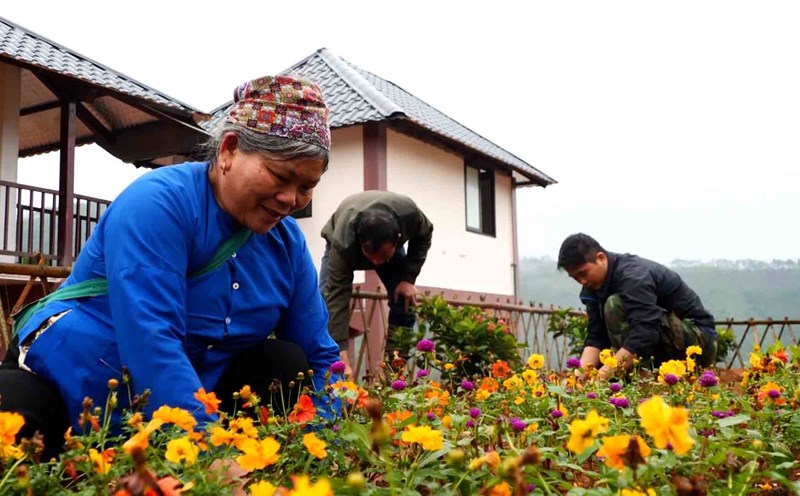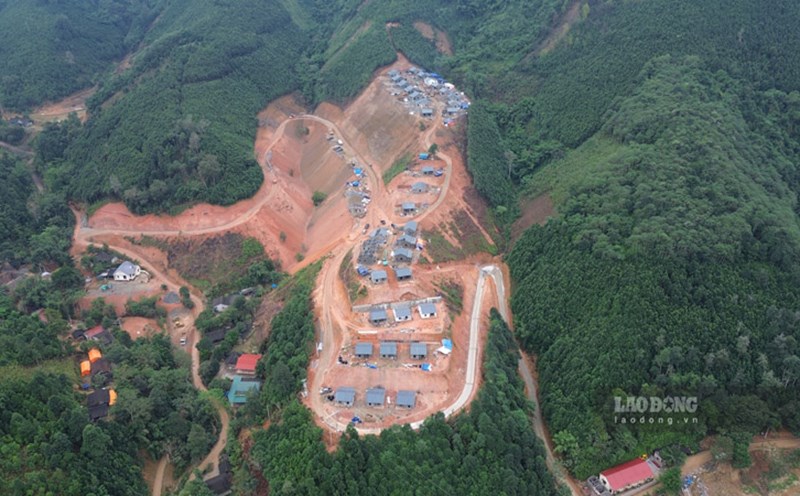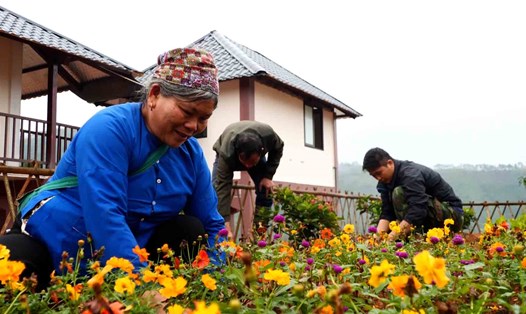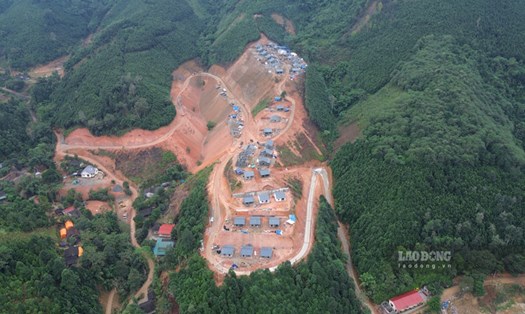Living on the edge of landslides
Two years after the serious landslide in the residential area of Nhu Le village (Hai Le commune, Quang Tri town), Mr. Pham Ba Chung is still haunted. Mr. Chung said that after a loud explosion, his house and two neighboring houses collapsed into the Thach Han river, and one of his relatives died under the rubble.
After the landslide, Mr. Chung had no house to live in. When the local authorities supported him with money, he temporarily repaired the livestock area and has lived there ever since. His wish is to be arranged in a resettlement area nearby, but his request has not been accepted. The reason is because his family is not eligible for relocation.
Not far from the landslide area, Ms. Ngo Thi Thuy's family still lives in a house built in 1993. Starting around 2020, after heavy rains and floods and illegal sand mining, the riverbank behind Ms. Thuy's house was eroded. Worried about the danger of landslides, every time they heard about floods, her family moved to relatives' houses. When the rains and floods were over, they returned.
Unlike Mr. Chung's family, Ms. Thuy is eligible to be resettled in the resettlement area, but considering the situation, there is no way to build a house or live there, so the whole family has to stay and live on the edge of the landslide. In addition to Ms. Thuy's family, dozens of households in Nhu Le village are still staying in the landslide area.
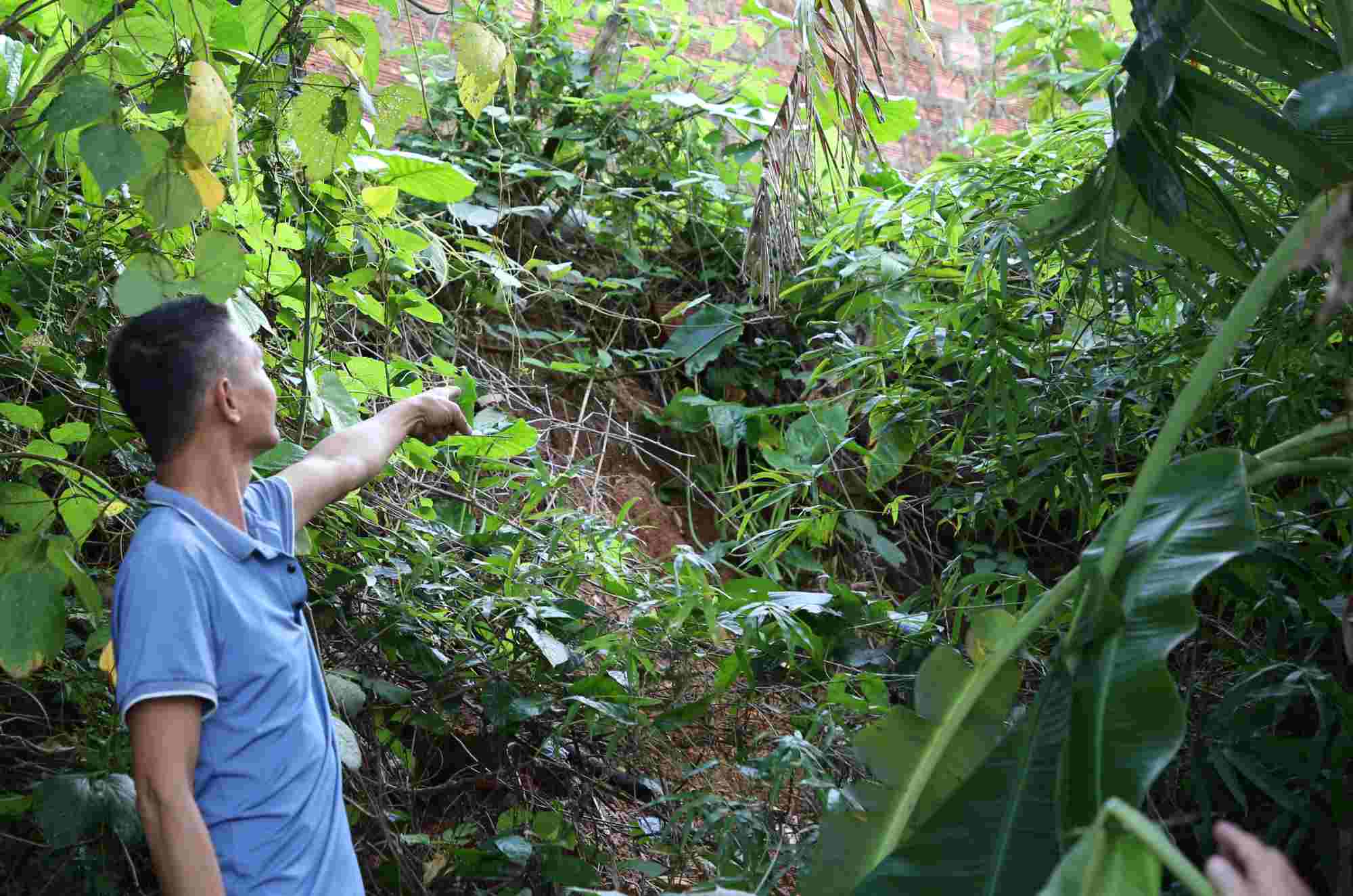
Review to soon move people to resettlement areas
Since 2016, Quang Tri province has implemented an emergency evacuation project from the flooded and landslide areas on the banks of the Thach Han River. This project builds the Cay Tram resettlement area (Hai Le commune) with a total investment of more than 39 billion VND, and a planned area of 35.5 hectares.
By June 2022, the project will be completed and handed over to the locality for management and use. Each household in the resettlement area will be granted 1,500 square meters of land, including 300 square meters of residential land. However, up to this point, only 9 households have received land in the resettlement area, of which 4 households have built houses.
Mr. Le Van Tam - Chairman of Hai Le Commune People's Committee said that the relocation of households living in landslide areas along the banks of Thach Han River encountered many difficulties, partly due to low compensation and support levels.
According to Mr. Tam, each family is supported with 60 million VND, of which the locality supports 20 million VND and the province supports 40 million VND. People think that 60 million VND is not enough to rebuild houses in the resettlement area. Some households do not want to move because of difficulties in developing their livelihoods, besides, the embankment project to prevent erosion across the Thach Han River is under construction, making people more subjective.
One problem that has delayed the relocation of people to resettlement areas is that the locality is reviewing and selecting subjects eligible for relocation because of Resolution No. 34/2023/NQ-HDND stipulating support policies for households and individuals under the program of resettlement and stabilization of residents in areas in Quang Tri province in the period of 2022-2025 and the Land Law 2024. The resolution has a support level that does not meet the actual needs of the people and many changes in regulations related to land. Therefore, the local government is reviewing and re-evaluating households that meet the relocation conditions.
Speaking to Lao Dong, Mr. Nguyen Hong Son - Vice Chairman of the People's Committee of Quang Tri town - said that the People's Committee of Quang Tri town will continue to mobilize households in high-risk areas to move to new resettlement areas to ensure their lives and stabilize production. The locality has implemented solutions to support livelihoods and career transition for people. For households located in landslide areas but not subject to relocation due to regulations, the People's Committee of the town is reviewing them to submit a report and recommendations to relevant authorities.

